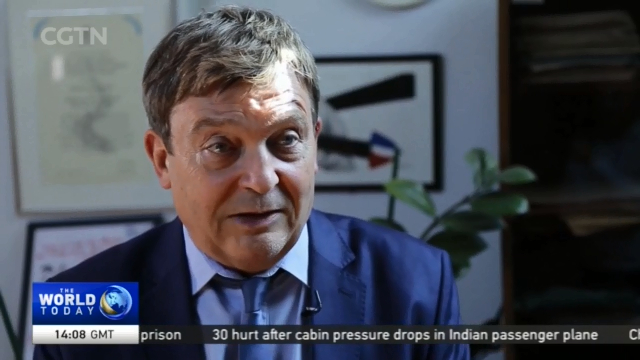
23:37, 20-Sep-2018
Migrant Crisis: Future hangs in air for refugees in Paris streets
Updated
22:58, 23-Sep-2018
02:22

The French government has been trying to deal with the continuous flow of migrants. Measures include the relocation of thousands of migrants at the Jungle refugee camp near Calais. But in Paris, many migrants are still living on the streets, not knowing what lies ahead. Stefan de Vries has the details.
When the migrant camps in Calais in Northern France closed last year, many refugees moved to the big cities, like Paris.
PIERRE HENRY, GENERAL DIRECTOR FRANCE TERRE D'ASILE (NGO) "Over the couple of years, hundreds of people are there and they stay in the streets. That is unacceptable."
Over recent weeks, the situation in the Paris camps has deteriorated, but there's been little response from the government.
PIERRE HENRY, GENERAL DIRECTOR FRANCE TERRE D'ASILE (NGO) "The migration crisis is behind us. During this crisis, Germany received one point six million refugees, and nobody had to stay in the streets. And we, with a hundred thousand people, there is a camp with 500 people in Nantes, there are people in Paris East and in a number of cities, the situation is not very good."
Some NGOs have stopped helping the migrants because of growing tension between the different groups. They now rely on volunteers for food and water.
The refugees are scared of being recognized back in their home country. They do not want to appear on camera.
Meretab agrees to talk, but only if we don't show his face. He comes from Eritrea and has been in France only ten days.
MERETAB REFUGEE FROM ERITREA "My friends are here, from Eritrea, Ethiopia and Sudan. France is good to us."
France will probably not grant him asylum, so he will likely have to leave.
MERETAB REFUGEE FROM ERITREA "I have no work. In Eritrea, I was a floor and wall tiler. I don't speak French."
STEFAN DE VRIES PARIS "The French government has increased the number of houses for asylum seekers of the last year. But many migrants have no other choice than to live in the streets, or in makeshift camps like here. But as long as there is no common European asylum policy, situations like these will continue to exist. Stefan de Vries, in Paris, for CGTN."

SITEMAP
Copyright © 2018 CGTN. Beijing ICP prepared NO.16065310-3
Copyright © 2018 CGTN. Beijing ICP prepared NO.16065310-3